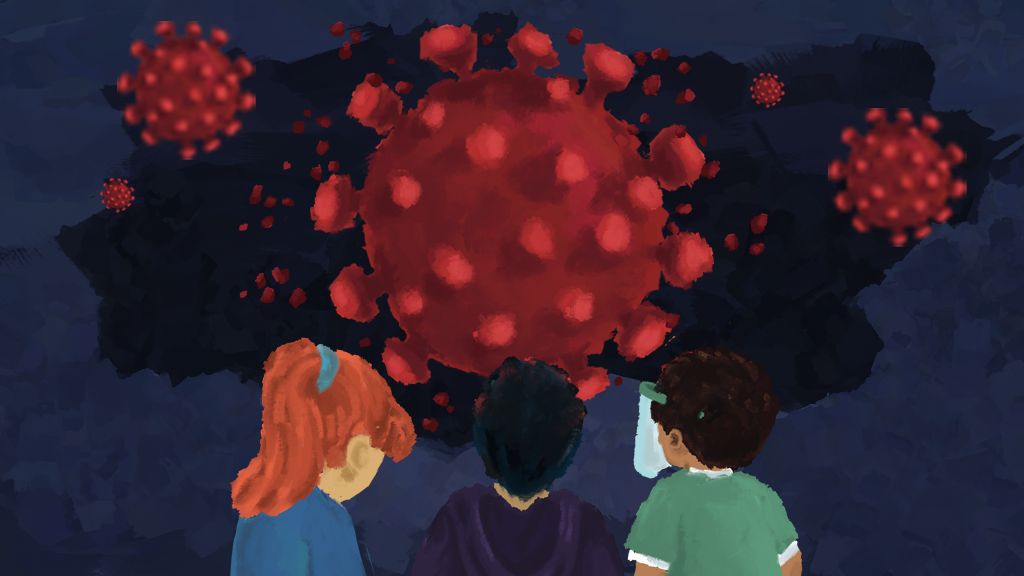The pandemic has impacted everyone in different ways. For many student athletes, it has meant a premature end to the spring season. For seniors, it has meant the end of their college athletic career.
A number of track and field athletes were willing to share their thoughts, feelings and experiences, including a fourth year Biomedical Sciences student.
Nick Valenti said, “To start, it was just mostly disbelief because me and my teammates were on spring break, and the news just kept rolling in and we were like 'it's not gonna affect us, our season's still going on.' Then by the end of the day we no longer had a season, and my career was over.”
"Then by the end of the day we no longer had a season, and my career was over."
Stress and panic were the chief states of mind among athletes as they scrambled to get their belongings from the locker rooms.
“That's kind of what we experienced, and everyone experienced it all at the same time. It was you're done, get your stuff and get out,” said Ethan Maguire, a fifth year Microelectronic Engineering student.
For many players this disbelief turned to shock, then to melancholy.
Moving Forward
While such disappointment and sadness cannot be understated, there is a bit of a silver lining to the whole situation.
“Now I think people are kind of over it — I don't know how else to put it. They understand and are okay with losing a season like this, and I guess we're not really losing a season, 'cause NCAA is giving a spring semester back, but that's really only if you have the opportunity to take it,” said Marissa Dispenza, a fifth year Chemical Engineering major.
The NCAA has extended eligibility for all student athletes, giving them the potential opportunity to make up the lost season at a later date.
“So the way it works is you have four years, four seasons over a five year period,” explained Maguire. “Since I'm in a five-year major, I did three and then I took a year off, and then I did my fitth year.”
This means that those students who will return for future seasons should be able to compete as though the spring season never happened. However, graduating seniors won't have the opportunity to take advantage of such gestures. While generally this is taken in good faith, they are of little consolation.
“They're not gonna get the chance to ... do one last dance,” Andrew McPherson said, a fifth year Electrical Engineering student.
For those who were unable to end the truncated season on a high note, this is especially disappointing.
“I actually didn't finish my last collegiate race, so my last race was at our league meet and I actually got pulled out cause I was injured, so that's kind of disappointing,” said Hannah Weppner, a fifth year Chemical Engineering student.
Keeping in Touch
The effects of isolation and social distancing have been taking a toll on athletes, as they struggle to balance school, work and continued training.
“Morale is definitely low — it's harder to motivate, to go out and train,” said Reid Kovacs, a fourth year Electrical Engineering student.
However, many athletes are staying in touch with each other in order to keep their spirits up.
“We have a group chat that we use to keep in touch,” said Weppner. “One of the really fun things that happened was ... two of my teammates had the idea of doing a spirit week where we dressed up differently every day.”
The pole vaulters, who are apparently the black sheep of track and field, have even been keeping in touch through their Minecraft server.
“Pole vaulters are like their own group, because we're always really weird,” said Maguire. “We have a Minecraft server that we play on, so that keeps us in touch with each other”
Additionally, athletes have been staying in touch with coaches to make plans, and continue training.
“Our lifting coach in general had some sessions held through Zoom,” said McPherson.
Some athletes find such connections and accountability helpful in finding the motivation to continue training.
“It's been extremely helpful,” said Kovacs. “We just talk as friends, but also occasionally talk about our training. It really really helps to have that accountability, to continue to train.”
What's Important
Despite some initial misgivings about the loss of a season of athletics, many students athletes recognize that such sacrifices are for the greater good.
“I definitely wanna express that we're upset that it's ended and it's sad, but in no way is anyone making light of the situation. It's tough that it ended, but at the same time it's the right call, and ... I'm not gonna pretend that I'm not sad, but public health kind has to come first, and there's no other way around it. I think RIT and athletics made the right choice at the end of the day,” said Weppner.
"... public health kind has to come first, and there is no other way around it."
Doubtless, it was not an easy decision, as sports still clearly serve an important role in the lives of those who participate in them. For those involved in the community, losing that should not be understated. But, of course the needs of public health must necessarily come first.








